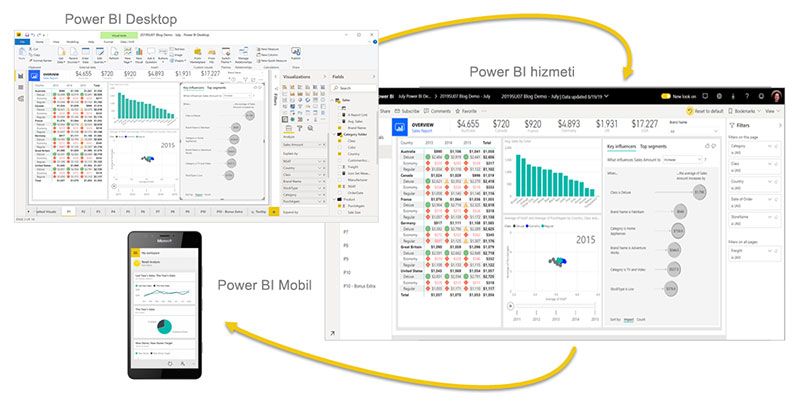Exploring Proxy Options: Unlocking Connectivity in the UK

Whether it’s increased privacy or bypassing of geo-restrictions you’re after, proxies are the go-to choice. They can achieve both of these functions by giving you the most freedom to tinker with different software, types, and locations.
The variety of ways to use proxies is their main benefit, but it also makes it difficult to decide what proxy option to choose. I always advocate for static residential proxies from the United Kingdom. This article sums up my argument for why they are the best.
How do proxies work?
Every discussion on proxies must start with the basic definition. Proxies are devices, usually servers or PCs, that can pass through the connection. Every request you send for a website (to load a page, for example) goes to a proxy server first. When the web server responds, the required data reaches the proxy first.
Only after receiving the answer itself does the proxy server forward it back to you. As such, the website doesn’t know that you are the original requester. It only sees the IP address of the proxy sending requests and receiving responses. Proxy servers can be located anywhere in the world to bypass geo-restrictions.
Your Internet Service Provider (ISP) or network administrator doesn’t know what you are doing online as well. The only information visible to them is that you send requests and receive responses from a server in another country. Without special investigation, this isn’t anything unusual.
Proxies can also work on the server side. Then, they are known as reverse proxies. In such cases, they are used to filter incoming traffic for web pages and can be set up for email protection or as remote access points. These are rare, technical cases. Most often, proxies are used for these purposes.
- Anonymous browsing by hiding your IP address.
- Bypassing geo-restrictions by choosing a specific proxy location.
- Increasing online security by creating an additional barrier between you and the web.
- Other use cases require integration with specific software for web scraping, SEO, ad verification, social media management, etc.
Your success in any of these uses rests on whether the proxy will perform quickly and without disturbances. In an ideal scenario, communication with a proxy server takes a split second. You shouldn’t even notice that your requests are routed through a proxy, but it depends on the type and location.
Proxy options by type
Proxy servers are primarily categorized by how they source their IP addresses. Then variations in access (shared or private), IP rotation (dynamic or static), and protocol (SOCKS5 or HTTPS usually) are added. Here, we will limit the discussion to the three primary types based on IP source.
Datacenter proxies are the cheapest and the fastest type bought in large numbers. They are based in specialized data centers that run powerful servers hosting thousands of IPs virtually. Such centers are commercial service hubs, so these IPs aren’t limited by residential internet plans, but neither are verified by ISPs.
Residential proxies provide the most ‘ordinary looking’ IP addresses. They are created by running software household devices that share their ISP-verified connection with the proxy provider. Such connections are bound to be slower and more expensive. But when you need one good IP address, residential proxies are the way to go.
Mobile proxies are getting more and more popular each year. They are based on IPs originating from mobile devices. It makes these proxies quite average in both speed and affordability, but they can allow access to mobile-specific websites or applications. Also, their speed will likely grow significantly with the wider implementation of 5G.
Proxy options by location: United Kingdom
Now comes the most crucial part of your proxy choice – choosing a location. No matter what proxy type you choose, location is the determinant factor of efficiency and access. Efficiency, as it relates to speed and bandwidth, has to do with network hops.
Hops happen when a data packet, such as a request to load a web page or a video, is passed from one network segment to the next. The fewer network hops there are between you and the target web server, the faster the connection will be.
By using proxies, you are already slowing down the connection with one network hop. Every nest hop will have an even greater impact. Luckily, most established web services, such as websites, streaming services, or apps, have multiple servers worldwide to speed up the connection for their customers.
Well-developed countries with a large base of internet users are more likely to have a better connection for popular services. That’s not just because they have better internet service overall. Web services themselves will try to have more servers in regions where their paying customers are located.
It’s also important to note that most of the internet is in English. It’s the dominant language, meaning most of the web is in English and accepts such visitors. Most of the websites accept English-speaking traffic and optimize connection speed for their profit. Brits, for example, are one of the most likely to practice online purchases.
It should be clear where I’m headed with this line of thought – proxies from UK, US, CA, AU, and IE have an advantage regarding proxy servers. It’s especially true for proxies from the United Kingdom. It’s close to servers in Europe, and it’s especially well-connected with networks in the United States.
However, connectivity in the UK is superior not just because the English-speaking world can connect fast with the rest of the internet but also because it only has things available to British audiences. Government websites, BBC, Netflix, Amazon, football leagues, and much more are only available with an IP from the UK.
Conclusion
With such great access and performance, even the slowest type of static residential proxies will be delivering great speeds regularly. I had success in outperforming datacenter proxies from other countries with residential proxies from the UK when sneaker copping. But if you don’t believe me, just try it out for yourself.
- The Rise of Account Planning Software in B2B - May 7, 2024
- Professional Networking: Essential Apps Like LinkedIn - May 7, 2024
- Steps to Ensure the Safety of Business and Customer Information - May 7, 2024








